Home Energy Survey 2023/2024
- Almost ¾ of Brits believe we are in a climate emergency
- Only 22% of people believed the government offered enough support throughout the energy crisis
- The government is the least trusted group, with 63% distrust (up almost 7% from last year)

Over the course of 2023, the economy suffered, as well as the wider public. We’ve seen interest rates rocket, the Bank Rate increase 14 consecutive times to 5.25% and inflation come down from over 10%. After Rishi Sunak replaced Liz Truss as default prime minister, his government then passed legislation to stop public sector workers from striking after suffering from significant wage cuts over the last decade or so. All in all, too much has happened to cover in full.
This year’s Home Energy Survey was conducted in light of a lot of these issues, and also touches on some of the environmental aspects of government policy. In an environmental move, the restrictions were relaxed for onshore wind farms in England, but Rishi Sunak went the other way by granting over a hundred oil and gas licences in the North Sea. This is one of the reasons why Greenpeace draped one of his many houses in black fabric as a sign of environmental protest.
With the Energy Price Guarantee and Energy Bill Support Scheme having come to an end in March 2023, households have certainly been worried about affording energy, which is only getting worse now that we are in winter again. In terms of low carbon heating, the Boiler Upgrade Scheme was upped to £7,500, but no further funds have been set aside. Similarly, last year’s ECO+ scheme was rebranded as The Great British Insulation Scheme, but no more money was injected to help homes in desperate need of insulation.
Just like last year, we analyse the questions by demographic for insight into how different generations vote on certain issues. With some of the same questions as 2022, we also look at how opinions have changed in the last 12 months, as seen by percentages included in parentheses throughout. This helps to understand whether the wider public believes meaningful change has been implemented. By taking part in the survey, participants help shape the content we publish.
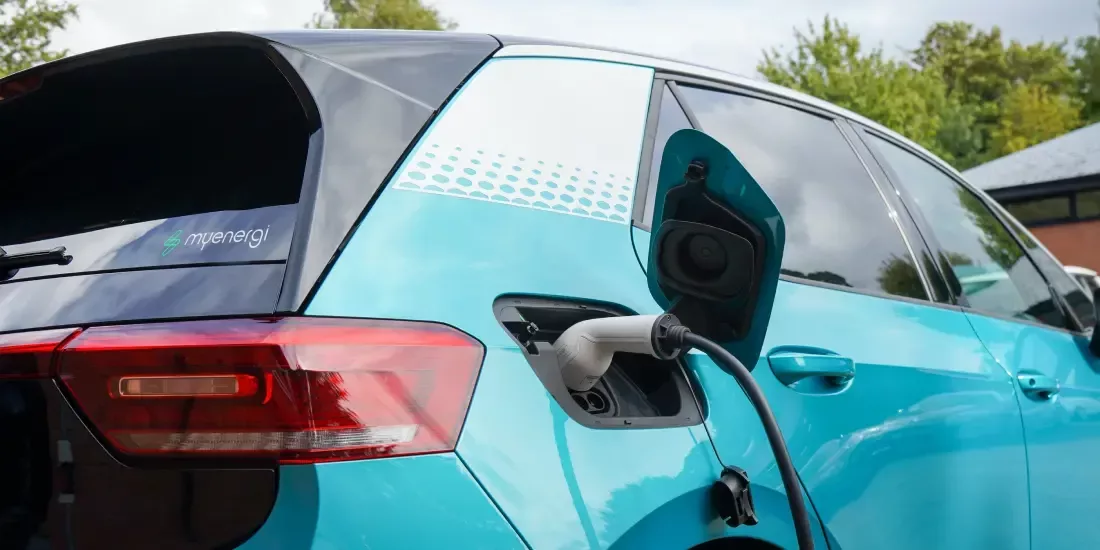
What's On This Page?
Click the links below and head straight to a specific section of the article.
Key Results
- Almost ¾ of Brits believe we are in a climate emergency
- More than 56% of UK homeowners have cut back on gas and electricity use as a result of the cost of living crisis and inflation (down 16% from last year)
- Almost ⅕ of UK homeowners haven’t given any thought about reducing their energy bills through low carbon technology
- Existing low carbon technologies in a property are preferential to more than 72% of UK homeowners, with a 63% leaning towards solar panels
- Plans to purchase low carbon technology in the near future is in mind for less than 43% of UK homeowners
- The energy crisis is a cause of worry for more than 95% of UK homeowners (down 2% from last year)
- Almost 64% of UK homeowners believe the government needs to change its actions the most in order to limit climate change (less than 1% change on last year)
- Over ¾ of UK homeowners are in favour of onshore wind farms
- Only 22% of people believe the government offered enough support throughout the energy crisis
- The government is the least trusted group, with 63% distrust (up almost 7% from last year)
Household Attitudes
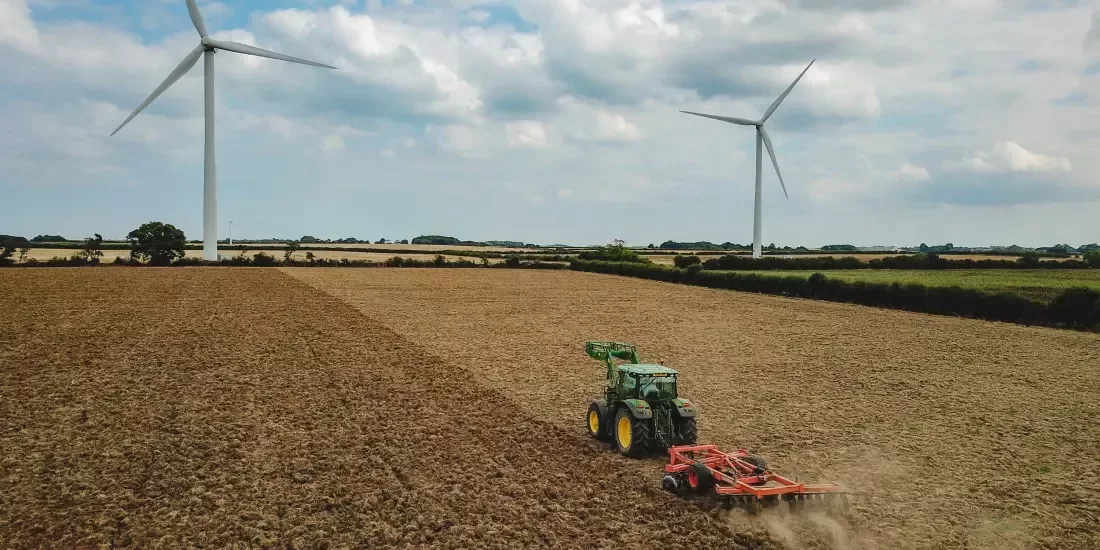
Have you cut back any of the following expenditures as a result of the rising cost of living and inflation?
Findings
The cost of living crisis has been part of everyday life for the public throughout 2023, so it’s no surprise that UK residents have made cutbacks. When energy support from the government came to an end in March 2023, the safety net was removed and everyone was subject to the price cap again, which is why over 56% of people have cut back on their gas and electricity usage (down 16% from last year).
With inflation coming down from a high of 10.5% and huge interest rates, households have had to find ways of paying their mortgages or increased rent. This is most likely one of the reasons why 53% of UK residents have cut back on days/nights out and going to restaurants. Food inflation has also been high, but it’s also a necessity, so only 31% have cut down on this (down more than 3%).
- 56% of people have cut back on their electricity and gas use (72% last year)
- Almost ⅓ of UK homeowners have reduced their food shopping spend (over ⅓ last year)
- Only 16% of UK homeowners haven’t cut back on any of their normal expenditures (up 3%)
Breakdown by age
The biggest reduction was found in 36-44-year-olds, who reduced how much they spent on days/nights out by almost 72%. In 2022, the largest reduction was found in 27-35-year-olds who cut back on clothes shopping by 77%.
More age groups hadn’t cut back on their expenses in 2023, with higher percentages of 45-72-year-olds or older continuing to spend as normal. This could be because they had gotten used to budgeting habits.
Those cutting back on petrol/diesel was almost halved in the last 12 months to November 2023, averaging around 25%, compared to a high of around 40% in 2022. With fewer petrol shortages and less panic buying, households aren’t cutting back on this as much as they were. Prices have also somewhat stabilised from their high of almost 200p/litre.
- Almost ¾ of 36-44-year-olds have cut back on days/nights out the most
- Petrol and diesel has been reduced by about 25% across all age groups
- Between 3% and 20% of all ages haven’t made any cutback
Who do you think needs to change their actions the most to limit climate change?
Findings
Thanks, in part, to the sheer number of climate protests taking place throughout the world, the public is more aware of greenwashing and the impact that various bodies with money or power have in securing our future. This is one of the reasons why the government and oil and gas giants are at the top of this year’s list, both at more than 63%.
Interestingly, banks, some of which still fund fossil fuel projects, were second from the bottom, at 16%. It’s clear that more change is needed, but politicians and fossil fuel CEOs need to listen to the public, who are becoming more aware of misdirection and misinformation. Instead of sending an increasing number of fossil fuel lobbyists to COP meetings, serious action needs to happen in order to limit the staggering effects of climate change.
- Almost 64% of UK homeowners believe the government should change its actions the most out of all other groups (no change from last year)
- Over 63% of people want oil and gas giants to change (up 8% from last year)
- 15% believe non-air travel should change (up 3%)
Breakdown by age
More than ¾ of 36-44-year-olds are most in favour of the government needing to change its ways, quickly followed by 45-53 and 27-35-year-olds. The only age group not to have put the government first are those aged 73+, who choose oil and gas giants instead.
Non-air travel is least prioritised by barely 10% of 27-35-year-olds, but almost 20% of 45-53-year-olds. The lowest contender in 2023 was NGOs, which only received less than 8% of the vote from 27-35-year-olds, but need to change according to ¼ of 45-53-year-olds.
Previously, the last survey had a high of 80% of 18-26-year-olds choosing the government as the top contender, but this dropped to 58% a year later. The lowest scorers in 2022 were still banks and non-air travel, both around 12%.
- On average, 67% of all age groups believe the government should change its actions the most out of all other sectors (down more than 2% from last year)
- 75.16% of 36-44-year-olds think the government should change the most (up 2%)
- More than 7% of 27-35-year-olds said the same about NGOs (down 12%)
How much trust do you place in the following groups?
Findings
Social media has been rife with misinformation and disinformation for many years, which carries its own dangers. As we’ve seen throughout the Covid inquiry, politicians know they aren’t trusted so would often hide behind scientists during important announcements, which in turn eroded some of the trust scientists/researchers had (57% last year vs 45.5% this year). Perhaps mostly because of the decisions of the current government, distrust has increased more than 7%, amidst failures to sack staff or in how accountability went out the window. This can be seen in the significant losses the party faced in local elections.
In the wake of the effects of the energy crisis, energy companies aren’t trusted by over half of UK residents, making them the third least trusted group behind sales people. Interestingly, the only group with more trust than indifference is scientists/researchers. People mostly feel indifferent about all other groups (outside the top distrusted three).
- Scientists/researchers have a 45.5% trust rating (down 11.5%)
- Almost 64% do not trust the government (up 7%)
- Only 5% of UK households trust the government (down 3%)
We are in a climate emergency
Findings
Climate change has been described by the UN as the defining issue of our time. Scientists have been arguing for change for decades, and very little has actually happened to help. Spurred on by the energy crisis caused by Russia’s invasion into Ukraine in February 2022, some countries took it upon themselves to shift their dependence on Russian oil and gas. Spain set a new record in May 2023 for producing 100% of its energy demand through renewables, and this is expected to happen time and time again.
The public is more understanding about the impact of climate change, and this can easily be seen in the numbers. Over ¾ of the UK public believe we are in a climate emergency, and yet the government still backs fossil fuels. The continual watering down of environmental policies does nothing to help the UK’s reputation, which is one of the reasons why the country is no longer considered a leader in renewables. The majority of people want action for the climate, or are at least worried about the current impact we’re having on the world.
- 76% of people believe we are in a climate emergency
- 44% strongly believe this
- A little more than 8% of UK residents don’t believe this
Breakdown by age
The most climate-conscious age group is those aged 73+, where just over 45% strongly agree with the statement, quickly followed by 45-53-year-olds. People aged 36-44 are the least happy to strongly agree. Instead, ⅖ simply agree.
Although 8% of 18-26-year-olds strongly disagree with the statement, we didn’t have many people from this age group take part, so this has skewed the results slightly. Besides this, the least agreeable to the statement are 54-72-year-olds at just over 4%.
The overwhelming majority of UK homeowners agree with this statement in some form, but an average of 16% show a neutral stance across all age groups, with the lowest percentage of 13.9% in those aged 73 and over.
- 45.6% of people aged 73 or over strongly agree
- Over 4% of both 54-62 and 63-72-year-olds strongly disagree
- On average, 16.47% of all age groups neither agree nor disagree about being in a climate emergency
I am in favour of onshore wind farms
Findings
Back in 2015, when David Cameron was prime minister, the rules on onshore wind farms were strict. When the energy crisis loomed and countries started worrying about energy security, the UK Government was not interested in lifting the ban. It was only in September 2023 that restrictions were eased and a single disagreement couldn’t prevent wind turbines from being erected where there was local consent. According to the University of the West of England, these restrictions led to a 97% decrease in the number of onshore wind farms being built between 2016 and 2021 compared to 2009 and 2014.
As most of the public is aware of the benefits of renewable energy, it’s no surprise that over 77% of people are in favour of onshore wind farms. Only a mere 3.5% strongly oppose them. Despite their uses, especially where energy security is concerned, renewable wind turbines still face a windfall tax, which can potentially turn investors off and limit the amount being built.
- Over 77% of UK households are in favour of onshore wind farms
- More than 13% of people are indifferent about them
- A little over 3% strongly oppose onshore wind
Breakdown by age
Onshore wind has the highest approval rating from 45-53-year-olds, at 46.8%, quickly followed by 44% of
63-72-year-olds. While 36-44-year-olds are mostly in favour of this technology, almost 42% only agree with the statement (13% more than strongly agree).
On the other end of the scale, those least in favour of onshore wind are people aged 73 and above, where almost 4% strongly disagree and more than 7% disagree. While ¼ of 18-26-year-olds strongly disagree, there weren’t many from this age group that took part in the survey, so the results seem unusually high.
The most neutral age group is 36-44-year-olds, with more than 22% neither agreeing nor disagreeing with the idea of onshore wind.
- 44% of 45-53-year-olds are strongly in favour of onshore wind
- On average, around 14% of all age groups are indifferent about them
- Almost 4% of people aged 73+ strongly oppose onshore wind
Low Carbon Technology

Tick all of the low carbon technologies that you know about
Findings
Low and no carbon technologies are incredibly useful, and households can make use of them to lower their energy bills as well as help the environment. It’s important that these systems are understood and well known as it can be easy for misinformation to spread about unfamiliar systems. Heat pumps, for example, have been hailed as a low carbon technology that would be suitable for mass rollout across the UK, but fossil fuel advocates have tried to spread false facts about them to turn people off.
Despite this, basic knowledge about the existence of heat pump technologies has increased. Solar panels are known by over 95% of people (up from 92%), but there is still a gap of over 23% (down 3%) between people who are aware of electric vehicles and those who know of EV chargers. The least well known technology is solar thermal, but this has gone up by 10% since last year. Only just over 3.6% of UK homeowners haven’t heard of any of these pieces of equipment.
- Solar panels are known by 95% of UK households (up 3%)
- Solar thermal technology is only known by 39% (up 10%)
- 3.6% of people have not heard of any low carbon technologies (down 3%)
Breakdown by age
Solar panels are known by more than 96% of 63-72-year-olds, (up 3% from the previous year) compared to almost 82% of 18-26-year-olds (down 6%). Batteries for these systems, however, are only known by ⅘ of 54-62-year-olds (up 5%) and 58% of 27-35-year-olds (down 9%).
Air source heat pumps are more well known than their ground source counterparts. There is a difference in knowledge of 27% between these two systems in 18-26-year-olds and 20% in 36-44-year-olds. This is only 2% in people aged 73+.
The least knowledgeable age group is people aged 73 and over, with slightly more than 5% not knowing any of the systems shown. Again, while this is almost 20% of 18-26-year-olds, not many completed the survey from this age group.
- 96.7% of 63-72-year-olds know about solar panels (up 4%)
- There is a gap of ⅕ of 36-44-year-olds who know about air source heat pumps over ground source types (up 5%)
- 5% of people aged 73+ have not heard of any of these low carbon technologies (down 2.8%)
Cost aside, would you purchase any of these low carbon technologies?
Findings
If money was no object, it’s interesting to see how many households would install low or no carbon technologies in their homes. As these are capable of lowering energy bills and reducing your reliance on the grid, it’s a little concerning that over 14% of UK households wouldn’t install any system for free. The only system less popular than nothing is a biomass boiler, at over 10%.
Solar panels are at the top of the list once more, at just under 69% (down 3% from last year), followed by solar batteries at almost 50%. Air and ground source heat pumps are preferred by more than ¼ of households. Given the option of a £7,500 grant or a free installation, ¾ of households would rather not choose to install a heat pump at all. This could be because of the misinformation out there or because they’re not fully understood.
- Solar panels are the most popular choice at just under 69% (down 3%)
- Almost 40% of people would have an EV for no cost (up 5%)
- Over ¼ of people would choose to have an air source heat pump for free (up over 3%)
Breakdown by age
The age group most in favour of free solar panels and batteries is 45-53-year-olds, with a huge 76.5% (down 2%) and 58% (up 2%) selecting these. In fact, this age group scores the highest in almost half of these choices.
Those least agreeable to free low carbon technologies are 18-26-year-olds, being the lowest scoring in two thirds of these choices. Besides this age group, 18% of 27-35-year-olds wouldn’t choose to have any system installed with no cost (up 16%).
In terms of electric vehicles, over half of 36-44-year-olds would have one for free (up 6%), compared to 46% of 27-35 (down 10%) and 45-53-year-olds (down 2%).
- 58% of 45-53-year-olds would have a solar battery for free (up 2%)
- Over ½ of 36-44-year-olds would have an EV for no cost (up 6%)
- 18% of 27-35-year-olds wouldn’t have any low carbon technology for free (up 16%)
Do you currently have plans to purchase any of the following low carbon technologies in the near future?
Findings
Even with discounts of £7,500 available on heat pumps, UK households are still put off low carbon technology because of the price tag. Against the backdrop of a cost of living crisis and high interest rates, Brits don’t necessarily have the money to spare. This is partly why over 57% of households aren’t planning on installing any system in the near future. The other reason is that some already have them.
Solar panels are at the top of the list of planned installations, at almost 29% (down 3% from last year), followed by solar batteries at over 22% (no change). Biomass boilers are still at the bottom of the list, with a mere 1.5% planning to buy one soon. Ground source heat pumps have grown in popularity slightly, marginally overtaking solar thermal technology.
- Over 57% of UK households have no plans on purchasing any low carbon technology at the moment (no change since last year)
- Solar panels are planned to be bought by almost 29% of people sometime soon (down 3%)
- Only 1.5% of households plan on buying a biomass boiler (down 0.5%)
Breakdown by age
For anyone yet to purchase low or no carbon technology, 47.1% of 36-44-year-olds are hoping to soon install solar panels (up 12%), compared to only 16% of 27-35-year-olds (down 30%).
On the other hand, no 18-35 year old is thinking about installing a ground source heat pump or biomass boiler (down between 2.7% and 33%). Additionally, no 18-26-year-old is thinking about air source heat pumps (down 33%) and no 27-35-year-old about solar thermal technology (down 8%).
The majority of age groups don’t currently have plans to install any low or no carbon technology in the near future, including 66% of 27-35-year-olds and those aged 73+. While some of these people will have already installed systems, others may simply not have the funds.
- ⅔ of 27-35-year-olds and people aged 73+ have no plans to purchase low carbon technology soon (up 31% and 0.1%)
- 36% of 18-26-year-olds are thinking about buying an EV (down 30%)
- Biomass boilers are the least popular option, only chosen by 1% of people aged 73+ (up 0.25%)
Is there anything specifically preventing you from purchasing these?
Findings
As we saw in the previous survey, cost is the biggest barrier to installing low and no carbon technology. Now that a whole year has passed with a series of pay strikes, high interest rates and soaring inflation, this has only increased. Almost ⅘ of UK homeowners are put off by the cost of these systems.
However, there is help available. The Boiler Upgrade Scheme offers £7,500 off a heat pump, and the scrapping of VAT on solar panels works out at a £1,000 discount.
The next two biggest obstacles to purchasing low carbon technology are the installation and being unsure, although these factors are much lower, at just over 20% and 12% respectively.
Education about the help available is important, especially because households may not realise how the costs of these systems have been coming down over the years. In fact, solar panels were 82% cheaper in 2019 than they were in 2010.
- Almost 80% of people say cost is the biggest factor with low carbon technology (up 4%)
- Less than 12% of UK households are put off from low carbon technology because they don’t believe it will cover their energy needs (up 5%)
Rank these factors in order of importance when it comes to low carbon technologies
Findings
Low carbon technology can put people off based on how it looks, as well as how it impacts the environment. It needs to be something reliable without too much operating noise and require little maintenance. Ticking all these boxes is a big ask, and the votes this year are fairly consistent.
Following the order from last year, price, reliability and environmental impact are the top three, followed by maintenance, operating noise and aesthetic. While over 4% of people believe aesthetics to be the most important, more than 45% put it as the least critical factor.
The environmental impact is the highest concern for 27% (down 4%). Reliability is most important for more than 17%.
- 39% of people believe price is the most important factor (no change from last year)
- Over 27% believe the environmental impact is the most important (down 4%)
- More than 5% of UK homeowners believe the operating noise is the most important factor (up 1%)
House and Home
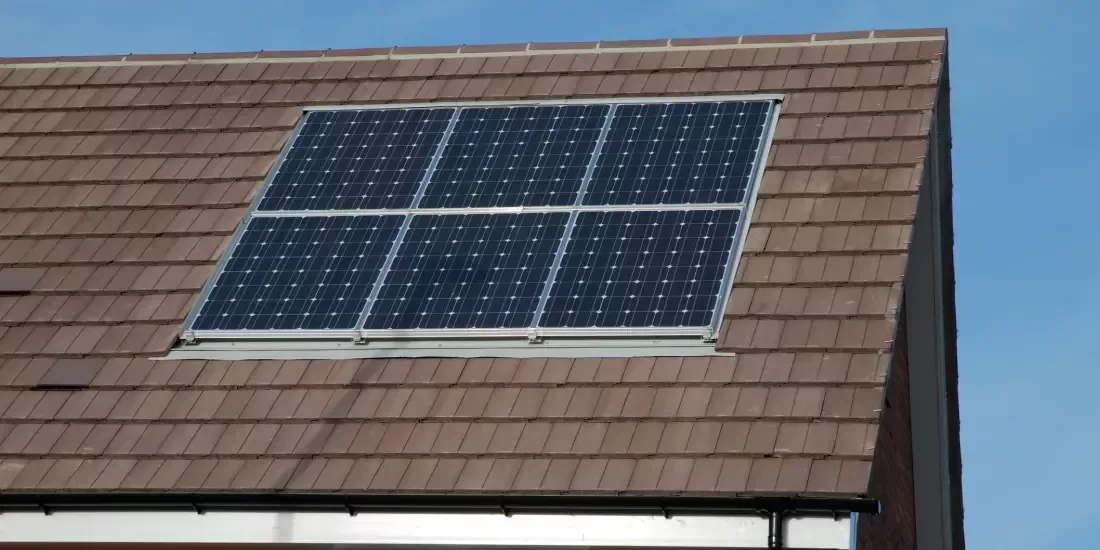
When moving home, would an existing low carbon technology make it more appealing to you (e.g., solar panels, heat pump, etc.)?
Findings
Considering the price of some low and no carbon technologies, it can be beneficial to have them already installed in a home you’re going to move into. If you’re looking to sell, you could increase the value of your home and gain interest from more buyers by installing these systems, as lower energy bills and higher EPC ratings are generally sought-after. A little over 6% of people wouldn’t be interested in buying a home with such a system installed (up 3%), but a massive 72% would (down 9%).
Don’t just take our word for it either. According to Rightmove, they’ve noticed a 73% increase in sellers using terms like “sustainable” and “low carbon” since 2020. The market has been on the look out for green credentials for a while, and it’s only becoming more prevalent.
- Over 72% of UK households would prefer a new home with existing low carbon technology (down 9%)
- A house with low carbon technology wouldn’t affect the choice of over 20% of UK homeowners
Breakdown by age
The biggest advocates of low carbon technology on new property are 45-53-year-olds, with 81% agreeing with this statement (down 8%). Those least agreeable are 18-26-year-olds, at only 55% (down 23%).
Invariably, the older a person is, the more they agree, until reaching 54, when it starts to drop off again. This can be seen in the percentages who wouldn’t be affected, where the highest scores are for 18-26-year-olds (36% - up 25%) and people aged 73+ (69% - up 51%).
The highest score for people answering no comes from 27-35-year-olds, at 14% (up 11.4%). Only 4.2% of 45-53-year-olds also don’t find low carbon technology on new homes appealing (up less than 0.5%).
- More than ⅘ of 45-53-year-olds find a home with low carbon technology more appealing (down 8%)
- The presence of the technology wouldn’t affect the choice of 69% of people aged 73+ (up 51%)
- 14% of 27-35-year-olds don’t find it more appealing (up 11.4%)
Which system would most affect your decision?
Findings
Of all the people who find it more appealing to buy a new home with low carbon technology installed already, the vast majority settle on solar panels. Over 63% of UK homeowners would either want to buy a home with a solar array (up 3% from last year). More than 12% of people would want a ground source heat pump (down 0.5%), which is the next highest choice. As these are the most expensive low carbon systems to install, it would save tens of thousands to have one already fitted.
With legislation passed that all new builds need to incorporate EV chargers on their developments, it could have influenced the decision of people opting for this. Fewer than 3% of UK homeowners would want a new home with an EV charger, but this is the cheapest way of charging an EV. With solar batteries, these would attract over 6.7% of people, despite being incredibly useful to harness solar energy.
- Over 63% of people would prefer solar panels on their new property (up 3%)
- Just under 3% of UK homeowners would prefer free hot water in the summer from solar thermal technology (no change on last year)
Breakdown by age
The age group that would most like solar panels on a new property is 36-44-year-olds, at 69% (no change). This is least favoured by 18-26-year-olds, at almost 17% (down 58%), who prefer ground source heat pumps overall (33% - up from 0%).
The least favoured technology is EV chargers, only chosen by 1.4% of 54-62-year-olds (down 0.5%), with 63-72-year-olds and people aged 73+ showing similar percentages. While no 18-26-year-old selected an air source heat pump or solar thermal technology, very few people voted from this age group.
The second most favoured technology is ground source heat pumps. Taking out the 18-26-year-olds, almost 16% of people aged 73 or over would prefer to have one of these installed in a home already (up 1.3%), compared to only 5.1% of 36-44-year-olds (down 2.4%).
- 69% of 36-44-year-olds would prefer solar panels on a new property (no change on last year)
- Only 1.4% of 54-62-year-olds would prefer an electric vehicle charger on their new property (down 0.5%)
- 16% of people aged 73 and over would prefer a ground source heat pump (up 1.3%)
I have heard of The Great British Insulation Scheme (formerly ECO+)
Findings
In November 2022, the Business and Energy Secretary at the time, Grant Shapps, announced the launch of the ECO+ scheme. This was an initiative that set aside £1 billion of funding in order to help around 400,000 homes across the UK. Once homes were improved, they would save an average of £310 a year on their energy bills.
Initial confusion came about as the scheme was a bolt-on to the Energy Companies Obligation (ECO), which is currently in its fourth and final iteration. This is a scheme for low income households who cannot afford to improve the energy efficiency of their homes and are living in poorly insulated properties. In March 2023, ECO+ was then rebranded as The Great British Insulation Scheme and its launch was delayed. According to the government website, this was to help with recognition and to help explain support available.
Despite all this, there’s a degree of uncertainty. More people haven’t heard of the scheme than have, and almost 19% of people aren’t sure.
- Fewer than 42% of people haven’t heard of the scheme
- Just under 40% of UK residents have heard of The Great British Insulation Scheme
The government provided adequate support for energy bills during the winter
Findings
We entered 2023 with the Energy Price Guarantee in place, which secured energy at a capped price per unit. As well as this, there were still a few payments left on the Energy Bill Support Scheme, which gave households a £400 payment between October 2022 and March 2023. Perhaps because of these government interventions, over 39% of the UK public believe adequate support was provided for households during the winter. In less advertised news, it was estimated that there were 45 deaths a day from people dying in cold, damp homes in the UK. 1,000 were recorded in December 2022.
This winter, however, doesn’t have any widespread support in place, which has been a cause of worry for many. With the energy price cap setting the cost of energy once more, plenty of households are concerned about heating their homes. The price cap even increased by 5% in January. This is after it fell by 7% in October 2023. Perhaps this worry is why over 21% of people disagree with this statement.
- Over ¼ of people are unsure either way
- More than 30% of UK homeowners agree with this statement
- More people strongly disagree than strongly agree that the government provided adequate support
Breakdown by age
As a new question for this year, we wanted to see what the reaction was to the introduction of the Energy Price Guarantee and the Energy Bill Support Scheme. Again, few 18-26-year-olds took part in this survey, but of those that did, 55% agree with the statement. If we take this age group out, 37% of people aged 73+ agree there was enough support.
Of the people who strongly disagree, those aged 27-35 come out on top at 22.5%. People aged 73 or over are most agreeable to the statement, being the age group least likely to disagree.
In terms of neutrality, it tends to be the older generations that neither agree nor disagree, with percentages gradually getting lower as you move down the age brackets.
- 37% of people aged 73+ agree there was adequate government support for energy bills
- 22.5% of 27-35-year-olds strongly disagree
- More than 27% of 54-72-year-olds and those aged 73+ are ambivalent about the support over winter
I have taken measures to improve the energy efficiency of my home in the last 12 months
Findings
Exacerbated by the energy crisis, almost ⅔ of homeowners have tried to improve how efficient their homes are in the last year. This could have been from draught-proofing around entrances to installing insulation. Even a brand new boiler can work wonders in reducing the amount it costs to keep your home warm, which is why so many people tried to reduce their spend in more meaningful ways, to help ease the financial impact the year has had.
Your home’s Energy Performance Certificate offers suggestions for ways in which you could save money on running and heating your home. Improvements could range from installing solar panels to fitting insulation in walls. However, some of these can be on the pricier side, which is perhaps why just over 34% of people haven’t tried to improve the energy efficiency of their homes. As we’ve already established, cost is always the biggest factor when it comes to improving your home.
- Just under 66% of UK homeowners have taken steps to improve the energy efficiency of their homes in the last year
- More than ⅓ of people haven’t
Breakdown by age
The highest percentage of any age group that has taken measures to improve the energy efficiency of their home is 54-62-year-olds, at 70.5%. The lowest score is found in 27-35-year-olds, at 61.2%. Due to the rising cost of energy, it’s no surprise that over 60% of every age group has found ways of lowering their energy bills in some way.
Of those that haven’t made any improvements, more 27-35-year-olds haven’t than any other age group (38.7%), quickly followed by people aged 73+ (38.06%).
- Just over 70% of 54-62-year-olds have taken steps to improve the energy efficiency of their homes in the last year
- 38% of both 27-35-year-olds and people aged 73 or over haven’t made improvements
Cost of Living and Energy Crises

Due to the cost of living crisis, energy crisis and rising inflation, are you thinking about purchasing low carbon technology to lower your household bills?
Findings
Low and no carbon technology is more economical to run and saves money on energy bills compared to more traditional forms of home heating. Not only this, but it’s called low carbon for a reason. You’ll be lessening your carbon footprint by using them.
Even though some technologies can be relatively new, they can come with a high price tag, which puts more people off, even with discounts available. Because of the financial pressures the country has been facing throughout the year, fewer than 43% of people have not thought about purchasing a low carbon system to cut their energy bills (up over 10% from last year).
- A little over 38% of UK homeowners have thought about using low carbon technology to reduce their bills (down 11%)
- Almost 20% of people have not given this any thought (up 1% on last year)
Breakdown by age
Of the age groups most concerned with using low carbon technology to lower their energy bills, 18-26-year-olds come out on top, at 55% (up 22%). Only 31% of people aged 73+ also have the same thought (down 7%).
On the other hand, almost 50% of 73-year-olds and older do not want to do this (up 9.4%). This could be because they already purchased technology in the meantime or because the financials are no longer feasible.
A higher percentage of 27-35-year-olds haven’t given this any thought (just over 30% - up 14%), while this number falls to 17.6% for 45-53-year-olds (up 1%).
- 55% of 18-26-year-olds are considering purchasing low carbon technology to lower their household bills (up 22%)
- Almost ½ of people aged 73+ have not thought about it (up 9.4%)
- 30.6% of 27-35-year-olds haven’t given it any thought
How worried are you about the energy crisis?
Findings
When we previously asked this question, the country was heading into a winter of high energy prices with the safety net of the Energy Price Guarantee. Although this capped the amount energy suppliers could charge per unit of energy, costs increased by 27% in October 2022. Before this, they increased by 54% in April 2022. Now, with no government support, there is still some worry about the energy crisis, but as prices slowly decreased throughout last summer, fewer people are extremely worried about it (over 28%, down from over 40%), despite the fact that prices still remain high.
Reserves of European gas supplies and other countries being more dependable about implementing energy security have helped to ease prices. Although around 96% of homeowners are still worried about the energy crisis in some way (down 1%), fewer people are as extremely worried as they were last year. A little over 4% of people are not worried.
- Almost 40% of people are very worried about the energy crisis
- Only 4% of UK homeowners are not worried at all (up 1%)
Breakdown by age
The most worried age group is 36-44-year-olds, with ⅖ extremely worried (down 14%). The highest score, however, comes from 45% of 18-26-year-olds who are very worried (up 12%), quickly followed by 41.7% of people aged 73 or over (down 1.5%).
Of the age groups least concerned with the energy crisis, more than 6% of 27-35-year-olds have given up worry altogether (up from 0%), compared to almost 3% of 36-44-year-olds (over double last year).
It’s also worth pointing out the few votes that came from 18-26-year-olds, which makes it seem as though a very high proportion aren’t worried at all. No one in that age group is a little worried (no change), compared to over 30% of people aged 73+ (up 12%).
- Almost 42% of people aged 73+ are still very worried about the energy crisis (down 1.5%)
- 6% of 27-35-year-olds are no longer worried (up from 0%)
Do you feel as though the government has offered enough support throughout the energy crisis?
Findings
The energy crisis is a long term issue that will keep recurring unless suitable provisions have been put in place to establish energy security. In 2022, it was revealed that renewables were 9 times cheaper than gas, and yet the UK fell behind other countries in installing these energy-securing pieces of technology. In terms of household help, Rishi Sunak, then-chancellor, announced the Energy Bills Support Scheme, while Liz Truss followed this up with the Energy Price Guarantee after she became prime minister in September.
At the end of 2022, Ofgem kept announcing increases in the price cap, which then forced the government to act on concerns from various bodies. Following the appointment of Rishi Sunak as Liz Truss’ successor, a lot of the decisions to do with household support were scaled back, including finishing the EPG early and then offering targeted support. In July 2023, the EPG came to an end because the price cap dropped lower than the £2,500 support. With all of the chaos amidst a new leader and the chancellor scrambling to undo the damage of the mini-budget, it’s not entirely surprising that almost 60% of people don’t think the government offered enough support.
- More than 59% of UK homeowners do not think there was enough support
- Slightly more than ⅕ of people do
Breakdown by age
Although this question has been slightly reworded from last year, the overall sentiment is the same. The age group most in disagreement about the levels of support the government has shown is 36-44-year-olds, at 79.1% (up 9.1%). The least concerned are people aged 73+, at 50% (down 9.2%).
Consequently, the oldest age group is also the most unsure, with more than ⅕ choosing this option (up 1.4%). The most certain then comes out at 9% of 18-26-year-olds (down 24%), with the majority choosing a positive or negative option.
In terms of happiness with government support levels throughout the energy crisis, almost 30% of people aged 73 or over have no issues (up 8%). The 36% of 18-26-year-olds is, again, skewed because of the small number of responses from this age group.
- Almost 80% of 36-44-year-olds do not think there’s been enough support (up 9.1%)
- Over 28% of people aged 73+ are happy with what they’ve seen (up 8%)
I supported the public sector pay strikes throughout 2023
Findings
This sentiment has a mixed reaction, with most people indifferent. Because of the erosion of pay over the last decade under the Conservative government, the majority of public sector workers had no choice but to strike. For starters, the Royal College of Nursing took up industrial action for the first time in its 106-year history. Teachers suffered a decade long pay squeeze, suffering from a 23% pay cut since 2010. Many others also underwent strikes throughout the year. Despite the sheer volume of strikes, just under 40% of people didn’t support them for making a stand against the government.
There is understandable frustration, especially when train strikes frequently happen. The most inconvenient part of these strikes is that it doesn’t affect those in power; only the public. Instead of resolving these strikes through empathy and understanding, the government passed laws to limit how people could strike and the effects it would cause the public. With all the cost pressures, it seems unfair that MPs have received a 31.7% pay rise since 2010. Multiple pay offers were rejected, which caused more disruption, but only because the government often refused to negotiate.
- Almost 28% of people neither agreed nor disagreed
- Under 40% of UK households did not support these strikes
- Almost ⅓ of people supported these strikes
Breakdown by age
Strikes are always a hot topic, and age groups are only slightly different in how they responded to this statement. If we discount the 55% of 18-26-year-olds who agree, results are fairly consistent. Very few people voted in this age category.
The most sympathetic age group is 45-53-year-olds, with almost ¼ strongly agreeing with their stance and more than 21% agreeing. Generally, support wavered the higher up the age groups you go, with more people aged 73+ disagreeing in some form.
The higher percentages are seen in the neutral reaction to the statement, with an average of 28.5% of all age groups neither agreeing nor disagreeing. The age group least willing to pick a side is 54-62-year-olds, at 31.4%.
- On average, 28.5% of all age groups neither agreed nor disagreed
- Almost 25% of 45-53-year-olds strongly agreed with the strikes
- Over 26% of people 73+ strongly disagreed
Energy Security
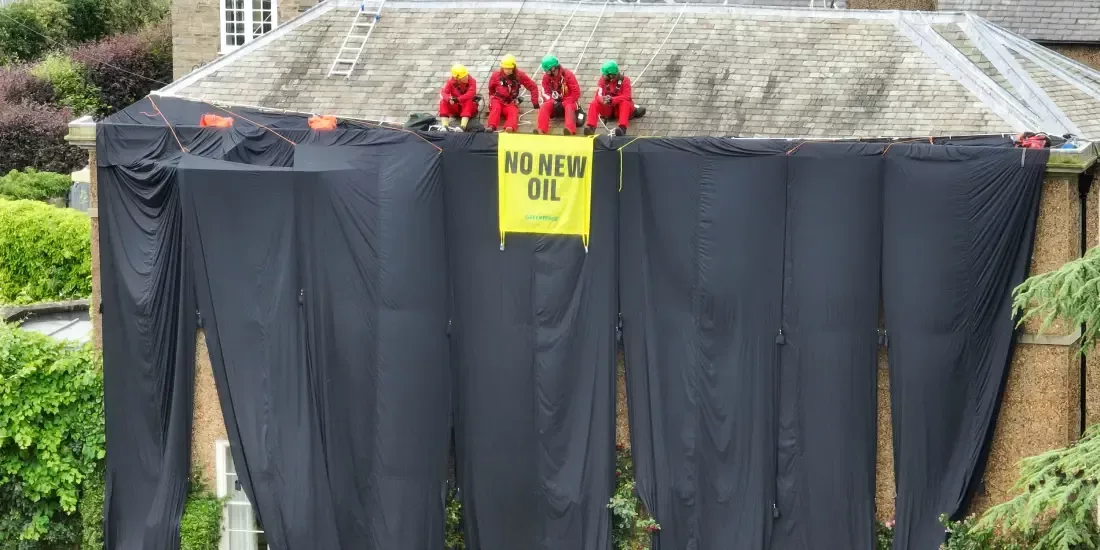
Where do you think the UK should invest to reduce the amount of electricity and gas it imports from other countries?
Findings
In 2022, the UK imported £117 billion of energy, being the first time to exceed £100 billion. In 2021, this amount was only £54 billion. Crude oil, coal and electricity are often imported to ensure there are enough reserves and power facilities can still operate. Since the National Grid is incredibly outdated, energy needs to be generated by the second to balance demand. When energy is required immediately, it’s easier to provide this with fossil fuels. However, sufficient supplies of energy storage would alleviate this problem.
With investment for energy security, almost ¾ believe more wind power is needed (up 5% from last year), while 67% think more solar power is necessary (up 1%). Tidal power increased more than 2% from last year, which has recently been revealed to have the potential of powering 11% of the UK’s total electricity demand.
- Almost 74% of UK homeowners want more investment in wind power (up 5%)
- Almost 68% want more solar energy (up 1%)
- 59% wish to see more investment in tidal power (up 3%)
- Only 13% of UK homeowners are in favour of fracking (no change)
Breakdown by age
The age groups most advocating wind are 54-62-year-olds and 45-53-year-olds, at 78% and 76% respectively (up 4% and down 5%). Solar is most preferred by 75% of 54-62-year-olds (up 3%), whereas tidal power is the top choice for almost 62% of people aged 73+ (up 7%).
The levels of uncertainty have increased since last year, with an average of 9.9% of people across all age groups unsure where the UK should invest for energy security (up 4.1%).
Since Rishi Sunak’s announcement about more gas drilling in the North Sea, the oldest age group is most in favour of this method (almost ¼ - up 7%). Interestingly, the only age group to have decreased their opinion about North Sea gas drilling compared to last year is 36-44-year-olds, at 10.7% (down 0.9%).
- 78% of 54-62-year-olds want to see more wind power (up 4%)
- Fracking is agreeable to more than 20% of people aged 73+ (up 1%)
- On average, 9.9% of all age groups are unsure
Shell and BP together made a record-breaking $68 billion in profit in 2022. Do you think these companies should have a direct windfall tax applied to them?
Findings
Even with the price of energy gradually coming down across 2023, costs are still much higher than they were pre-pandemic. Cornwall Insight has suggested that they will remain high for the rest of the decade. When households have been struggling to pay bills, has it been right for these massive corporations to benefit from higher returns they haven’t been responsible for? The government has even handed these companies tax-free permits to prop up their profits.
Thanks to various tax breaks, BP and Shell paid almost no tax over the last few years. In fact, they both received more money back from the government than they paid in tax every year between 2015 and 2020 (except Shell in 2017). Shell even paid a negative amount of tax in 2021, making its 2015–2021 total minus £686 million, announcing it would only pay tax for the first time in the UK in January 2023.
- Over 81% of people want to see direct windfall taxes against oil and gas giant profits (down 2%)
- 8% of UK homeowners are unsure (no change)
Breakdown by age
Even with the few people aged 18-26 voting on this question, results are fairly consistent across all age groups. Almost 85% of 54-62-year-olds are most in favour of windfall taxes against Shell and BP (no change on last year), followed by almost 82% of 45-53 and 63-72-year-olds (down 3% and 1%).
The age group happiest with these never-before-seen profits is anyone aged 73 or over, at 12% (up 2%). Ignoring the few responses from the youngest age group, there seems to be a slight correlation between a higher age and disagreement with windfall taxes.
Conversely, there seems to be a link between youth and uncertainty, with generally more younger age groups not certain whether to give a positive or negative response. The least sure are 63-72-year-olds, at 7% (down 0.6%), compared to 15% of 36-44-year-olds.
- People aged 73+ are most against windfall taxes (12%) and amongst the highest for them (almost 80%)
- Practically 85% of 54-62-year-olds want to see more windfall taxes against Shell and BP
We need more public ownership of our energy companies to keep prices down
Findings
The appetite for public ownership is incredibly strong, with more than 69% of UK homeowners believing this should happen (down 10% from last year). With public ownership of energy generating systems, shareholder dividends are no longer a concern. The business model isn’t focused on making money, but maintaining itself and bringing down prices for all. The main issue with our current energy system is that every stage, from generation, transmission, distribution and supply, is privatised. This makes households susceptible to major price shocks, the likes of which we’re still seeing today.
Sweden, Norway, Iceland, Switzerland, France, Denmark, Finland, Austria and New Zealand all own 50–100% of at least one energy generation company (often renewable). The UK doesn’t have this benefit. While almost 50% of offshore wind farms are publicly owned, only 0.07% of them are owned by the UK. This means that other countries benefit from money made by our energy grid. This could be better used by reinvesting it back into the system. More than 13% of people are against the idea (up 4%).
- Just over 44% of people strongly agree that more public ownership of our energy companies is needed
- More than 5% of UK homeowners strongly disagree that energy prices will stay down with public ownership
Breakdown by age
The format of this question was changed to allow for further analysis in opinion. The age group most in favour of public ownership of energy is 36-44-year-olds (discounting the handful of responses from 18-26-year-olds), at 53.5%. Even 30.5% agree, putting their positive answers at 84% (down 1.5%).
On the other end of the scale, no 18-44 year old strongly disagrees with public ownership (down 10%), meaning only the older generations have reservations about the benefits it brings. Over 6.75% of people aged 73+ strongly disagree and 12.5% disagree, putting their negative total at 19.25% (up 7%).
On average, 14.4% of all age groups are unsure either way (up 5.5%). The biggest hesitancy is found in 54-72-year-olds and those aged 73+, all over 16% (up 6%, 7% and 4%).
- More than 53% of 36-44-year-olds strongly agree
- No 18-44 year old is in disagreement about the benefits of public ownership
- Fewer than 20% of people aged 73+ are happy with a privatised energy sector (up 7%)
I believe carbon capture will be useful and effective to reach net zero
Findings
Often praised by big, polluting businesses as a panacea for the climate crisis, there is very little evidence to suggest that these processes work on a large scale. Small projects have been found to work effectively, but the global issue of pollution is a much bigger threat. Amidst some of the announcements from the government in 2023, carbon capture, utilisation and storage (CCUS) has been discussed as a solution to this issue. Despite this relatively new technology, most people tend to agree that it will be needed in future, with more than 52% of UK homeowners believing it’s necessary.
Critics believe that CCUS will not be effective at scale. It also shouldn’t be relied upon to allow the continuation of fossil fuels. In reality, there are some emissions that cannot be removed entirely, or offset, so using carbon capture in these areas will most likely be necessary. The dangers come from the sheer cost and energy-intensive maintenance side of these projects, as well as how leakage could undo the efforts that will be made.
- More than 36% of people agree that carbon capture technology will help the UK reach net zero targets
- Just over 12% admit they don’t know what carbon capture is
Breakdown by age
If we remove the small number of responses from 18-26-year-olds, the highest percentage is seen in 38.8% of people aged 73+ agreeing for carbon capture in net zero targets. This is followed by 36% of 63-72-year-olds.
The same number of 36-44-year-olds strongly agree as the number that admits they don’t know what carbon capture is (11.5%), but more 27-35-year-olds admit their lack of knowledge (16%) over strong advocacy (10%).
In all likelihood, no matter your age group, if you don’t agree that carbon capture is needed, you will show ambivalence. The highest percentage neither agreeing nor disagreeing is seen in almost 35% of 27-35-year-olds.
- Almost 40% of people aged 73+ agree that carbon capture will be useful
- 6% more 27-35-year-olds admit they don’t know what carbon capture is than strongly agree
- Only 5.5% of 36-44-year-olds strongly disagree
I support Rishi Sunak’s decision to grant new oil and gas licences in the North Sea
Findings
Perhaps one of the most controversial decisions the Prime Minister has made in office is the granting of new oil and gas licences in the North Sea. In his defence, the government stated that the UK relies on oil and gas for most of its energy. However, in terms of energy security, this is an incredibly weak argument, as this should change in future with more renewable infrastructure. Renewables are still the cheapest form of energy generation, and offer a reduction in bills much sooner than fossil fuels ever will. Even after the government later admitted that this venture will not bring household energy bills down, 48% of people agree with his decision to grant new licences, while ¼ of people actively disagree.
Rishi Sunak claimed it’s greener to have oil and gas imported from closer to the UK than bought from overseas, but none of it would belong to Britain by default. Anything extracted in the North Sea would be sold on the global markets to the highest bidder, which is often other countries. If oil and gas can be bought cheaper elsewhere, then the UK will ship it in instead.
It was recently revealed that the world can run on renewables.
- Over 30% of UK homeowners agree with Sunak’s decision
- More than 12% disagree and over 14% strongly disagree
Breakdown by age
Very few 18-26-year-olds responded to this statement, so taking out their results means that the highest percentage is seen in 36-44-year-olds who neither agree nor disagree with the PM’s decision (43.5%). The least ambivalent are people aged 73+, at just over 20%.
The age group most against new oil and gas licences is 45-53-year-olds, who disagree (almost 18%) and strongly disagree (18.6%) more than others. The trend tends to be that the older you are, the more you generally agree with new oil and gas projects.
Just over 57% of people aged 73+ agree to some extent with this decision, compared to almost 30% of 36-44-year-olds. On the other hand, more than 30% of 27-35-year-olds disagree by some token, compared to 28% of 63-72-year-olds.
- 57% of people aged 73+ agree with the PM
- Almost 18% of 45-53-year-olds strongly disagree
- More than 43% of 36-44-year-olds neither agree nor disagree
Survey Details and Methodology
The Home Energy Survey was compiled in order to analyse public feelings and awareness about various issues affecting the UK today. It was conducted in November 2023 and received 4,500 responses across a range of 24 questions. Our sample consisted of residents all across the UK, encompassing a range of age demographics and incomes.
In order to provide a full and appropriate breakdown of the data, it went through a process of editing, verification and analysis. We also performed segmentation analysis to discover how different age groups responded to the questions.
If you wish to access the full data set collected by Eco Quote Today, please email info@leadinsight.co.uk
If you have a PR or news publication enquiry, please email info@ecoquotetoday.co.uk
Any suggestions about future questions would be gratefully received at ecoquotetoday@leadinsight.co.uk
Related articles
View all Solar Panel articles
A Complete Guide to Caravan Solar Panels
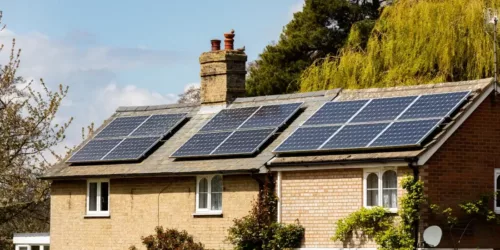
Are Solar Panels Worth It in Wales?

Project Solar UK: Company Overview

Battery Storage for Solar Panels Explained
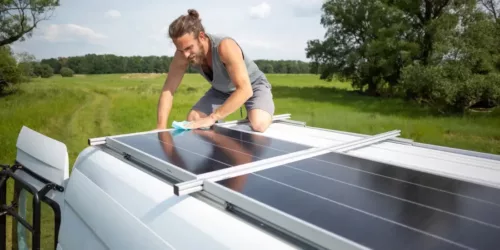
Solar Panel Kits Explained - Everything You Need to Know

Are Solar Roofing Tiles Worth It?
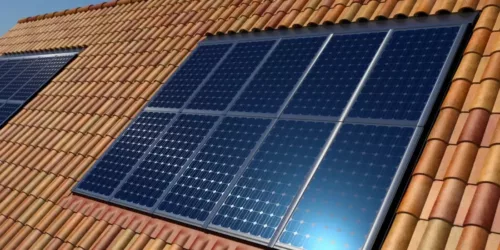
A Complete Guide to Roof Integrated Solar Panels

